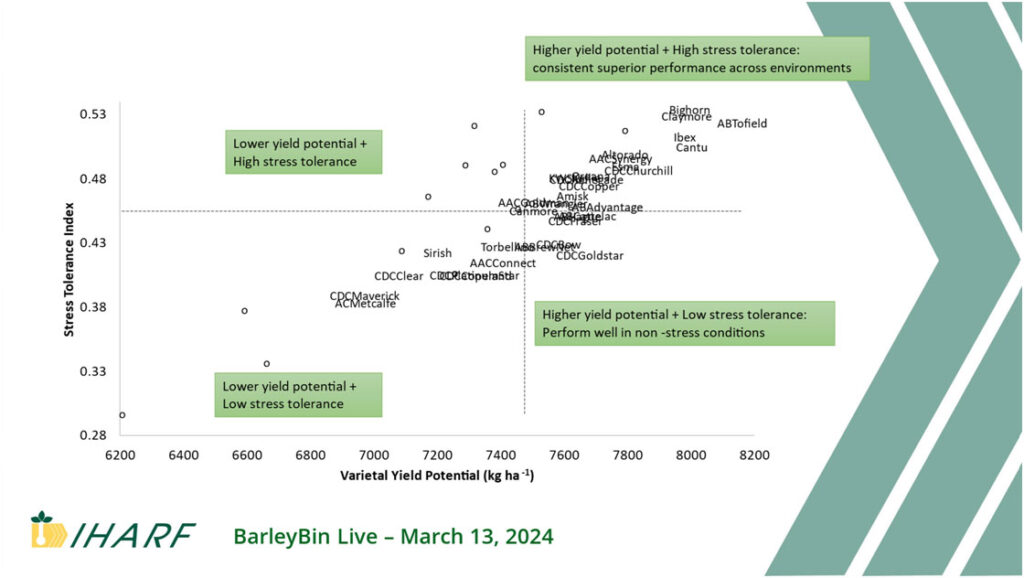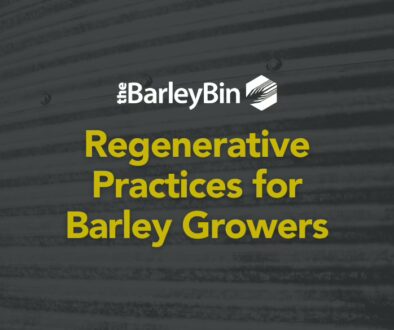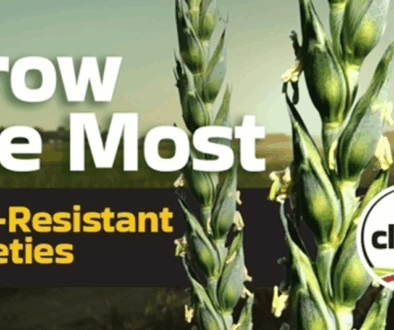The Science Behind Variety Performance Data from Christiane Catellier, IHARF
By Mitchell Japp, Research and Extension Manager
Do you have a burning question for a barley researcher? SaskBarley brought three prominent barley researchers in front of a packed house at our BarleyBin Live event at the Harvest Eatery in Shaunavon, SK this March. Dr. Charles Geddes, Christiane Catellier, and Dr. Phillip Harder brought some productive discussions and conversations to an engaged crowd. If you missed it, you can rewatch the livestream on Twitter/X.
Here’s one of those questions.
We sometimes hear of barley varieties that outperform the expectations we have from the seed guide – what is behind that?
Christiane Catellier, of Indian Head Agricultural Research Foundation (IHARF),got into the rationale behind a project she led (SaskBarley funded a portion) to do a deep dive into the data in the Varieties of Grain Crops / SaskSeed Guide.
The yields achieved in by any variety are dependent on a combination of factors: the variety’s genetics, the environment and management practices. The goal of the regional variety trials, which contribute the data to the SaskSeed Guide, is to minimize variability from the management practices. By growing the trials over multiple locations and for several years, the environmental variability is limited as much as possible. The result is that the seed guide provides the best assessment of the genetic potential of a variety. But, with so much data collected, there is an opportunity to dig deeper and see how a specific variety performs in specific conditions.
Considering the drought conditions in southwest Saskatchewan the past several years, it would make sense to look for varieties that outperform others in hot and dry conditions. Christiane was able to review the data and compare barley varieties performance across a range of environments. As it turns out, most barley varieties are broadly adapted. This means that they will generally have similar relative performance to other varieties regardless of the conditions they are grown in.
For more insights into her research, watch the live stream from the event.

Check out the Q&A from our other speakers: Dr. Charles Geddes and Dr. Phillip Harder




